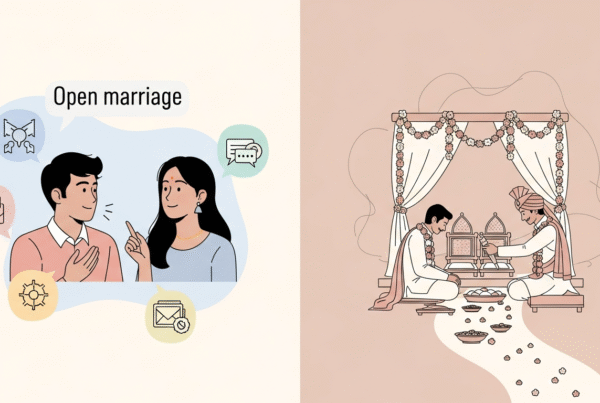How Bad Does Rejection Hurt?
Are you scared of hearing this…? “Sorry. No, thank you. I’m just not interested.”
No one likes rejection but we all perceive it and react to it in different ways. Some of us bounce back almost immediately and go on with our lives. While for others, the task proves much more challenging.
Truth is that rejection cuts deep, especially in romantic pursuits. It can be difficult not to take rejection personally, even when it’s not about you as a person but about the rejector’s circumstances instead. E.g. They might already be in a relationship, they could be focusing on their career or health right now, they might be looking for a different kind of person, etc.
For many of us, the pain of rejection isn’t debilitating. Now, imagine if it was. If the emotional pain you’re experiencing, sympathetically, is amped up to the point where it’s painful, disruptive, and incredibly overwhelming. This experience has been named Rejection Sensitive Dysphoria (RSD).
Rejection Sensitive Dysphoria (RSD) is a term often associated with Attention-Deficit/Hyperactivity Disorder (ADHD) and describes extreme emotional sensitivity and pain triggered by the perception or experience of rejection, criticism, or failure. While RSD is not an officially recognized diagnostic criterion in the Diagnostic and Statistical Manual of Mental Disorders (DSM-5), it is a phenomenon that resonates with many people, particularly those with ADHD and ADD.
Intensity aside, the possible signs of RSD are things we all struggle with. We’re all overthinkers on occasion. We’re all people pleasers at some point in our lives, and sometimes, we all run away from situations that might fail. I know I do.
I’ve spent many a night tossing and turning, ruminating about interactions I’ve had–ranging from
the good to the bad to the downright ugly. I am no stranger to the mental tailspin that negative judgments can induce. I’m still haunted by memories of being ghosted or receiving polite yet devastating rejection emails. It would also be dishonest to claim that the fear of rejection has never kept me from trying certain things or that initial failure hasn’t held me back from throwing my hat in the ring a second time. Stoic, I may be, but have I burst into tears when faced with less-than-positive feedback about something I thought I aced? Of course I have.
If my experiences have been defining, what about those of people with RSD? How can we support someone who might experience an augmented version of the anxiety and distress I have? Experts say that we can be kinder and more aware when we reject by explaining the rejection.
Now, that doesn’t mean going into details about what the other person may or may not have done wrong, but rather, communicating your needs and feelings about the matter. The most important thing to remember while rejecting someone (in any context) is to be empathetic. That means framing things from your perspective; think of sentences starting with an “I” rather than a “you”. It means acknowledging the other person’s vulnerability, not breadcrumbing with promises of friendship or other forms of connection, and giving them definitive closure. These measures help ensure that one party doesn’t take excessive responsibility (since everyone has the right to honour their emotions and needs) and prevent resentment from growing.
When it comes to being on the receiving end of rejection, things get slightly more complicated simply because we’re not good at dealing with it, but we can get better. What TIC suggests is exposure therapy: get a friend to say no to you for a few days about anything and everything. Exposure to rejection in a play scene with someone you trust can do wonders.
The conventional route to dealing with rejection is less playful but more introspective.. The first thing to do is acknowledge that rejection is a part of life; no one has gone through life without being told no at least once. So take heart in the universality of it all. Second, treat yourself with some compassion. One doesn’t need to shove their feelings in a box and avoid them for all eternity. It’s okay to take some time and process your emotions in peace. Professionals even encourage it. This doesn’t mean isolating yourself or dwelling in disappointment, but rather, it’s a sign to take the time to see rejection as an opportunity to grow. After all, not everyone dares to send in that application or approach that cute stranger at the coffee shop. You did. Just because it didn’t work out once doesn’t mean you can’t learn and try again.
This is a comprehensive list of experiences related to Rejection Sensitive Dysphoria to better understand everything RSD encompasses and what that means for people living with it:
- Intense Emotional Pain: Individuals with RSD often experience intense emotional pain in response to perceived or actual rejection, criticism, or failure. This pain can feel overwhelming and can be both psychological and physical.
- Sensitivity to Imagined Rejection: People with RSD are highly sensitive to rejection, whether it is real or imagined. They might interpret neutral or even positive interactions as negative or critical.
- Low Self-Esteem: The fear of rejection and criticism is connected to pre-existing low self-esteem and a persistent feeling of inadequacy.
- Avoidance of Social Situations: To protect themselves from potential rejection or criticism, individuals with RSD might avoid social situations, challenges, or opportunities that could lead to failure or judgment.
- Emotional Outbursts: The intense emotional pain can lead to sudden and severe emotional outbursts, including anger, sadness, or frustration. These outbursts are often disproportionate to the triggering event.
- Perfectionism: To avoid criticism or rejection, individuals with RSD might develop perfectionistic tendencies, setting unrealistically high standards for themselves and others.
- Relationship Difficulties: The hypersensitivity to rejection can strain personal and professional relationships, as individuals with RSD might misinterpret others’ intentions and react strongly to perceived slights.
- Rumination: Individuals with RSD often dwell on past experiences of rejection or criticism, replaying them in their minds and feeling the associated pain repeatedly.
Like I said in the beginning, rejection hurts us all. While our feelings might not rival the harshness of the guilt, shame, and sadness someone with rejection dysphoria might experience, I hope reexamining the way we handle our emotions fosters much-needed empathy for those who do.
Written by Ananya Jagoorie





